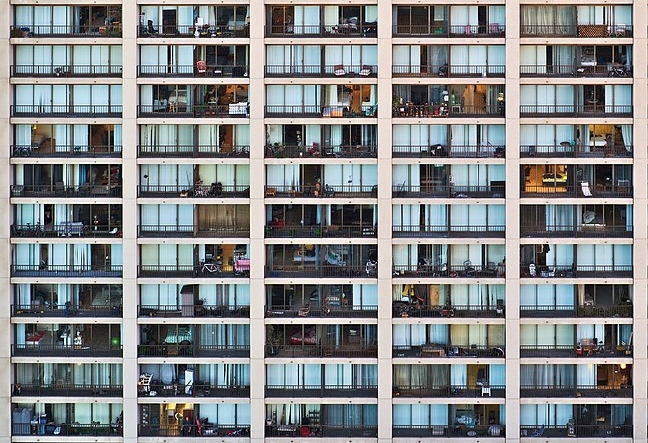If you’re a tenant facing a COVID-19 hardship, it can be difficult to understand how you are — and are not — protected from eviction. Here’s what you need to know.
Applying to the government for rent relief will guard you from eviction for that debt while you await a decision, with a major exception. If you apply more than 15 business days after your landlord asks you to submit an application, you become vulnerable to eviction.
Many San Franciscans have found themselves in this situation, said Ora Prochovnick, director of litigation and policy at the San Francisco Eviction Defense Collaborative, which gives tenants free legal aid.
“This is a big important thing,” Prochovnick said. The state has a process to help these renters but, like many aspects of the complex rent-relief regulations state lawmakers have revised multiple times during the pandemic, it can be hard to understand.
Protections specific to San Francisco only add to that complexity. In February, the Board of Supervisors passed legislation, authored by Supervisor Dean Preston, guarding tenants from eviction for unpaid rents that will be due in or after April.
With the economy still recovering, the local protections will undoubtedly be a lifeline for many. But they will not prevent the displacement of people who have accumulated rent debt during the pandemic. In April, eviction protections will expire for those people with pending rent-relief applications. Up to two-thirds of requested rent assistance could fail to reach San Franciscans by then, leaving thousands of people vulnerable to eviction.
Many tenants have complained that the government can take months to respond to their application, leaving the possibility that the eviction occurs before the tenant is approved. The government is supposed to expedite applications for tenants who say their landlords are trying to evict them, Prochovnick said.
The Public Press has tried to demystify these complicated regulations for tenants. Check out our flow chart, as well as additional details and caveats below it.
Go here for a copy of the chart, which can be downloaded.
Notes from the flow chart
(1) Tenant protections vary based on when the unpaid rent was due.
Tenants can never be evicted for unpaid rents that were due from March 1, 2020, through August 31, 2020.
Beginning Oct. 1, 2021, tenants who had not paid at least 25% of what was due from September 2020 through September 2021 could be evicted. Those who have applied for rent assistance are protected from eviction until either the end of March 2022 or when they receive a decision from the government — whichever comes first. Starting April 1 of this year, they could be evicted if they have not paid all of the rent that was due since October, as well as the 25% threshold for the prior months.
San Franciscans will be protected from eviction for unpaid rents that come due from April until the end of the local state of emergency related to the pandemic. Mayor London Breed has not said when she will lift it.
(2) The government’s periods for tenant protections and rent reimbursements differ slightly. Though tenants facing COVID-19 hardships receive eviction protections for unpaid rents going back to March 2020, they can get government rent relief only for April 2020 onward.
(3) To get the most protection from eviction, tenants should apply for rent relief before they get a court summons.
That means they should apply within 15 business days of their landlord either:
- Giving them a “Pay or Quit” notice, telling the tenant to immediately pay their rent debt or move out.
- Telling them to fill out their part of a rent-relief application that the landlord had begun.
If the tenant applies during that time frame, a court should prevent the eviction process from moving forward until either April 1 or when the tenant receives a decision from the government — whichever comes first.
If the tenant does not apply before the time limit has elapsed, then the landlord can begin the eviction process and the court may issue a summons. From that point onward, halting the eviction requires more than merely applying for rent relief. The tenant will need to be approved for the money.
Are you facing eviction? Call the Eviction Defense Collaborative at (415) 659-9184 or send an email to [email protected] as soon as possible. The organization advises that tenants respond within five days of being served with court papers to avoid the risk of a default judgment against them.
Is your landlord suing you to recover pandemic rent debt? Go here to read our guide on how small claims court works, and how to argue your side of the case.

